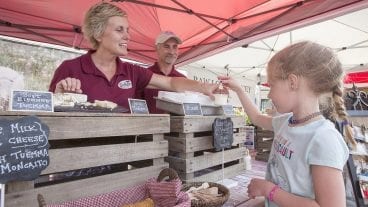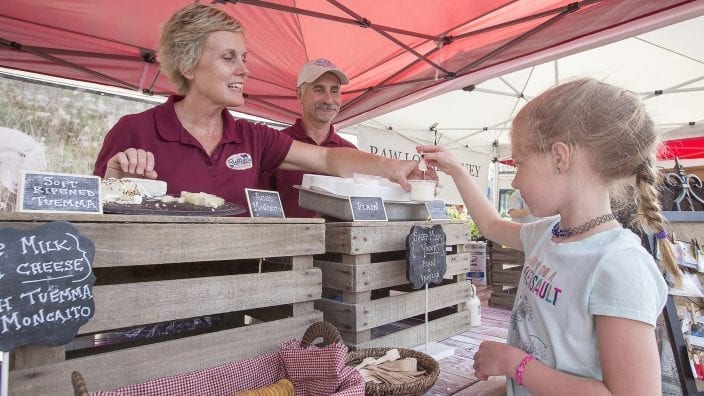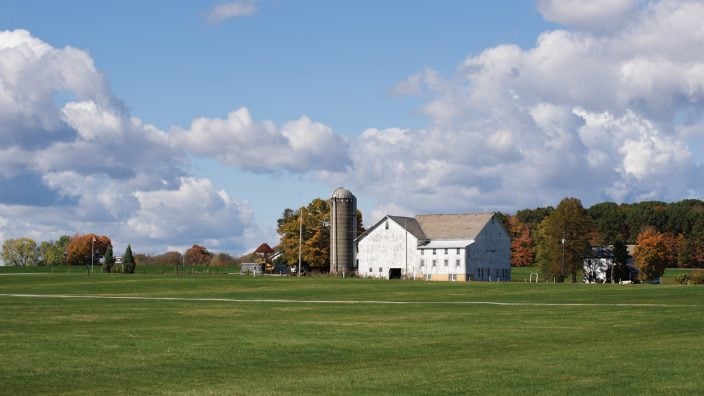Farmer’s Guide to Trucking Regulations available to Ohio Farm Bureau members
The guide includes a farm driver checklist, overview of state and federal regulations and exemptions, CDL qualifications and more.
Read More
The state budget has to be signed into law by Gov John Kasich June 30, and Ohio Farm Bureau’s top priority issue – changes to the Current Agricultural Use Value formula – is slated to be a part of it.
There were three main components being asked for via this reform legislation – one of the key ones focusing on conservation.
Currently, farmers are discouraged from idling land for conservation because it is taxed as though it is producing crops. The reforms asked for stipulated that CAUV land used for a conservation practice, or enrolled in a federal land retirement or conservation program for at least three years, be valued at the lowest of the values assigned on the basis of soil type.
Farm Bureau believes taxing conservation lands at the CAUV minimum value is appropriate because those lands are nonproducing.
“Since Ohio’s farmers are committed to being great stewards of the land and environment, working to remove the tax penalty for placing land in conservation was important for our members,” said Jenna Beadle, OFBF director of state policy. “Farmers are trying to do the right thing and our tax policy should be supportive of their efforts.”
Farm Bureau also asked that land be taxed accurately on its agricultural value by using the U.S. Department of Agriculture equity rate instead of the one in the current formula. Farmland has seen a nearly 300 percent increase on average in taxable value in recent years.
Farm Bureau also asked the legislature to address the nonfarm factors in the formula to ensure it accurately represents the realities of the agriculture economy


The guide includes a farm driver checklist, overview of state and federal regulations and exemptions, CDL qualifications and more.
Read More


Ohio Farm Bureau provides opportunities, platforms and resources to help you develop your voice in the industry and give farmers a seat at the table with leaders and legislators.
Read More

The emergency fuel waiver to allow the sale of summer gasoline blends containing 15% ethanol will lengthen the period during which Americans can continue buying E15 from June 1 to Sept. 15.
Read More

The Small-Scale Food Business Guide covers federal and state regulations for selling food products such as raw meat, dairy, eggs, baked goods, cottage foods, fruits and vegetables, honey and more.
Read More

New resources and technology are broadening the different types of sales tools and strategies available to farmers.
Read More

ODA will enroll 500,000 acres into the program for a two-week sign-up period, beginning April 22, 2024, through May 6, 2024. Contact local SWCD offices to apply.
Read More

Katie Share of Columbus has been named ExploreAg and Youth Development Specialist for Ohio Farm Bureau.
Read More

Mary Klopfenstein of Delphos has been named Young Ag Professional and Ag Literacy Program Specialist for Ohio Farm Bureau.
Read More

The plan has been updated to give sole proprietors access to more rate stability and a smart solution that offers potential savings on health care.
Read More

The American Farm Bureau Federation, in partnership with Farm Credit, is seeking entrepreneurs to apply online by June 15 for the 2025 Farm Bureau Ag Innovation Challenge.
Read More